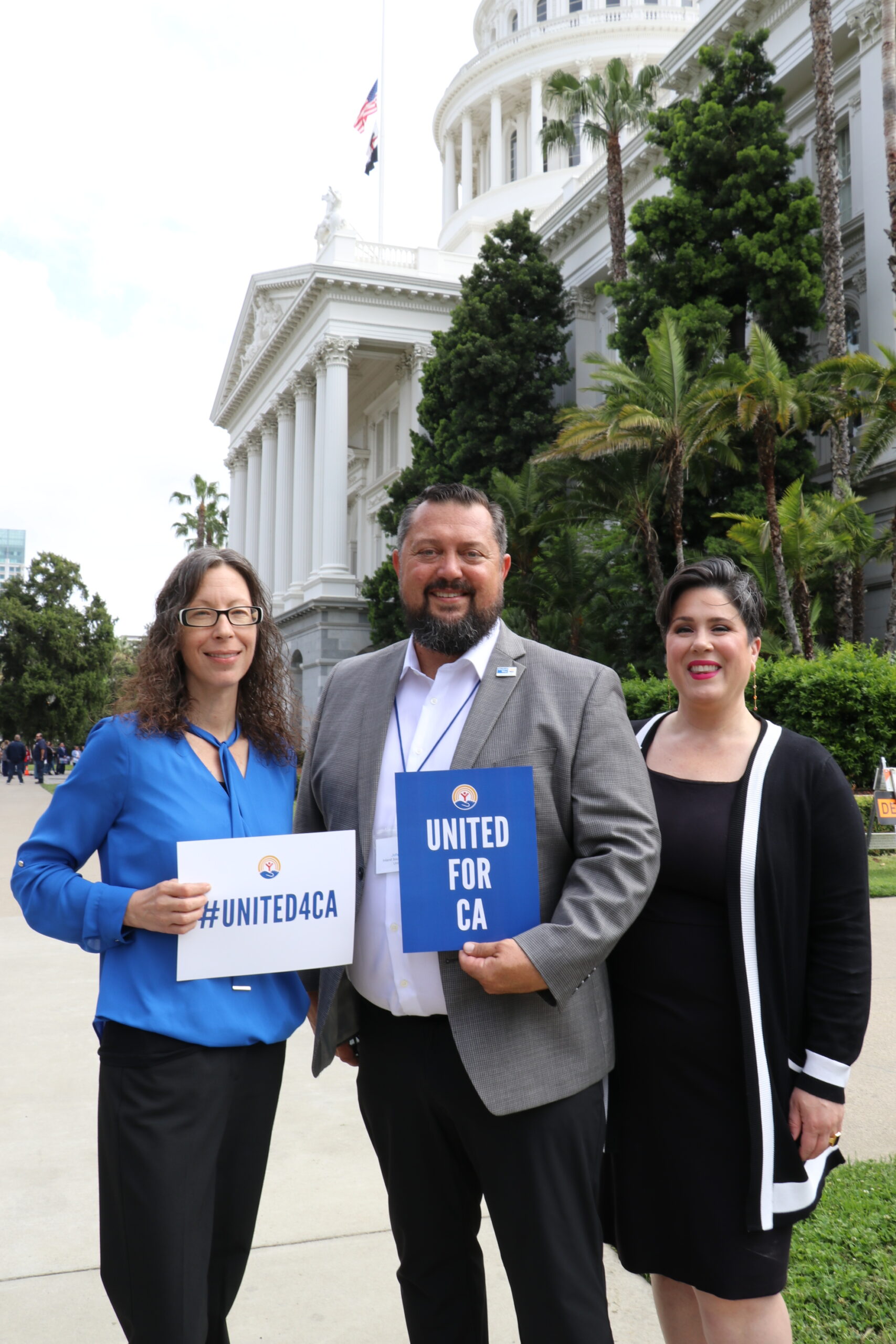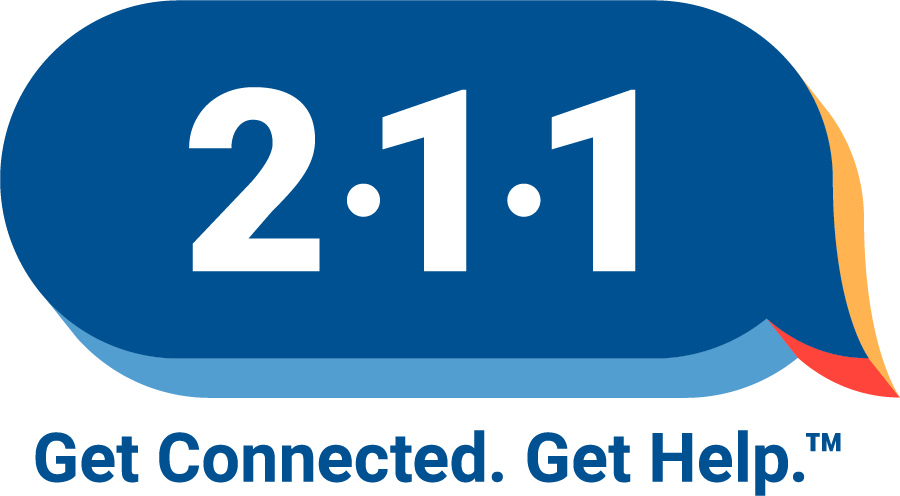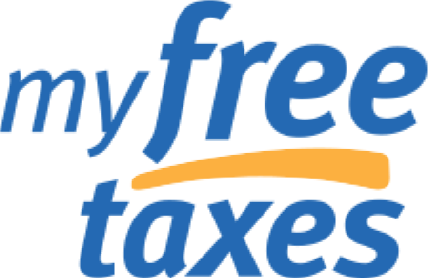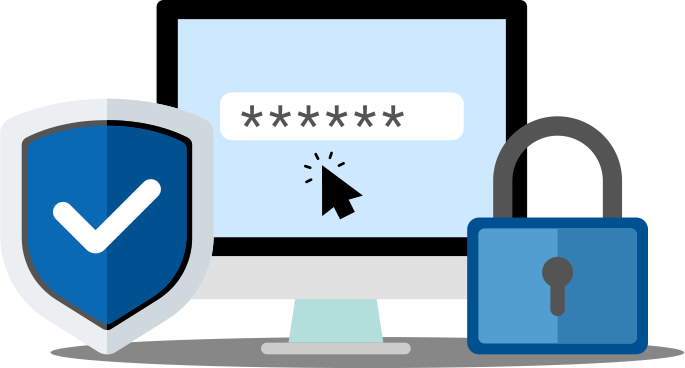Welcoming New Public Policy Co-Chair Kimberly Starrs

A key component of United Ways of California’s work—and the reason our organization was created—is to help United Ways across the state organize and collectively advocate for state policies and legislative priorities that affect all of our communities. One way we ensure we’re meeting the needs of our California United Ways is by convening a Public Policy Committee that helps shape the strategic direction of our advocacy work.
Critical to the success of this Public Policy Committee are co-chairs from local United Ways.
We were honored to have Mari Perez-Dowling, in her role as president and CEO of United Way of Central Eastern California, as a Public Policy Committee co-chair until the end of 2024, when Mari transitioned to an exciting opportunity with United Way Worldwide. Her leadership and support have been an incredible asset to our collective work, and we look forward to seeing the amazing impact she will continue to have at the worldwide level.
We’re thrilled to introduce you to our newest Public Policy Committee co-chair, Kimberly Starrs, president and CEO of Inland SoCal United Way! Kimberly is helping lead crucial policy conversations alongside co-chair Keisha Browder, CEO of United Way Bay Area.
We asked Kimberly a few questions to help you all get to know her better.
Get to Know Kimberly Starrs
Tell us a little bit about yourself.
I was born and raised in Palm Springs and am the oldest of 6 kids. I grew up thinking that I was going to be a professional musician, but the world had other plans for me! I dabbled in event planning and hospitality before coming to the United Way network. I live in the beautiful San Gorgonio Pass with three teenagers, my husband, and our three adorable cats. I love to host parties, and cooking is my love language! Our family enjoys day trips exploring Southern and Central California, camping across the West Coast in our travel trailer, and taking wild adventures like driving to Texas last spring to watch the eclipse.
My journey in social service was not straightforward. I fell in love with the concept of community building while living in the post-war Balkans from 2002-2004. I experienced the power of neighbors uniting together to support each other when there was very little outside support. The incredible networks of people coming to each other’s aid was something I had not experienced in my little SoCal bubble, and I knew that I wanted to find something similar to that type of work when I came back to the U.S.
How long have you been with the United Way network? What made you want to work with United Way?
I’ve been in the United Way network for nearly 20 years. I started with United Way of the Desert, moved over to United Way of the Inland Valleys, and then joined the merged organization [Inland Empire United Way and United Way of the Inland Valleys] of Inland SoCal United Way. Two months after I was appointed CEO, Inland SoCal United Way merged with United Way of the Desert—the agency where I started my career.
I had no idea what I was getting into when I applied for the front desk/receptionist position with United Way of the Desert. The job had event planning as part of the job description and I had some experience in wedding planning. I told the Executive Director that I would continue to look for another position in my chosen field if they hired me. They must not have had any other applicants, because they gave me the job! Once I started to learn more about the mission, the values, and the network opportunities of the agency, I was hooked! I wanted to learn everything I could learn and knew that this was an incredible opportunity to fulfill a lifelong dream of service to my community while also being able to advance in my career.
I’ve been fortunate to have many mentors and many folks who have guided me along the way. The beauty of United Way is that I was able to learn about so many different aspects of the work by being curious, ambitious, and forming relationships with our donors, volunteers, and supporters.
Thanks to United Way, I was able to go back to school and get my MBA and also get my CFRE [Certified Fund Raising Executive] credential. Neither of these things would have been possible, or even in my purview, without the encouragement and support of United Way.
What should we know about the community your United Way serves? (Riverside, San Bernardino, and East Los Angeles Counties)
The Inland region of Southern California is diverse, scrappy, and growing. It is the transportation corridor for the United States, with 40% of all goods moving through the region.
The Riverside-Ontario MSA is the 13th largest in the US, and the GDP for the region is 20th in the US. It is one of the top-producing regions in the nation. The GDP per capita is another story altogether, ranking in the low 300s—on par with Waco, TX. This stat highlights the income disparity and the high value of the labor created by workers in the region that does not trickle down to the working class. The Coachella Valley is home to some of the wealthiest families and individuals on the planet, while also being home to a large migrant farm worker population.
The topography of the region is unique—there are very remote regions, mountains, deserts, suburban areas, and large metro areas. This makes transportation between the different areas very difficult for folks without access to resources, which is compounded by the fact that most resources are located in densely populated areas. The area is also politically mixed, with the urban centers being progressive and the rural areas being very conservative.
Our work at Inland SoCal United Way—championing community resiliency, financial security, and health—reaches 1 million people via 30+ programs and projects in the Inland Region.
What motivates you?
I come from a difficult background, having experienced many of the struggles that we seek to help alleviate for our communities. The thing that keeps me motivated is the question of who we are leaving behind when folks aren’t able to rise to their potential. I have always felt like I was behind others because of how much “catching up” I had to do. I often imagine the type of world we could live in if folks weren’t constantly struggling and would be free to pursue the arts, philosophy, and building a better world. This dream is what motivates me.
Why are policy and advocacy important to you? How does the collective advocacy of California United Ways together support your community?
Public policy and advocacy are the only tools we have available to change conditions for the community we serve. We cannot social service our way to a better community; we must change unfair, unjust, and cruel policies that keep people in situations that prevent them from living joyful and meaningful lives. The collective advocacy of the state enhances, magnifies, and amplifies the voices of our communities and offers us a larger and louder platform to ensure that lawmakers can hear our messaging above other competing voices.
What do you appreciate or value about California United Ways working together to collectively advocate for policies at the state level?
It has been such a powerful tool to be able to speak with a unified voice across the state with our own local representatives. It really brings the power of the network to life when we can show up to our representatives’ offices in Sacramento and D.C. with a collective and unified message. It also helps us leverage local meetings in our community to be able to say that there is broad support across the state for the issues we are bringing forward. And for smaller areas, it is so helpful to have support from the larger areas to help magnify our messages.

What are you looking forward to working on as a California United Way Network Public Policy Committee co-chair in 2025?
I am looking forward to continuing to promote messages of hope, equity, unity, equality, diversity, and love. United Way is a powerful vehicle for uniting people across different circumstances to agree that a healthy and thriving community benefits everyone. We are fortunate in that we not only are ideologically positioned to unite folks, but we are doing the hard work in the community. We have evidence that supports the efficacy of programs and policies that enhance the well-being, economic mobility, and prosperity of each community. I am looking forward to doing whatever I can in my capacity as co-chair to help enhance and uplift the work that is happening across the state, from being a partner in commiseration to celebrating wins of every shape and size! I’m ready to roll up my sleeves and dive in!
We’re so grateful to Kimberly Starrs and Keisha Browder for their support of our network and policy work as co-chairs of the Public Policy Committee!



